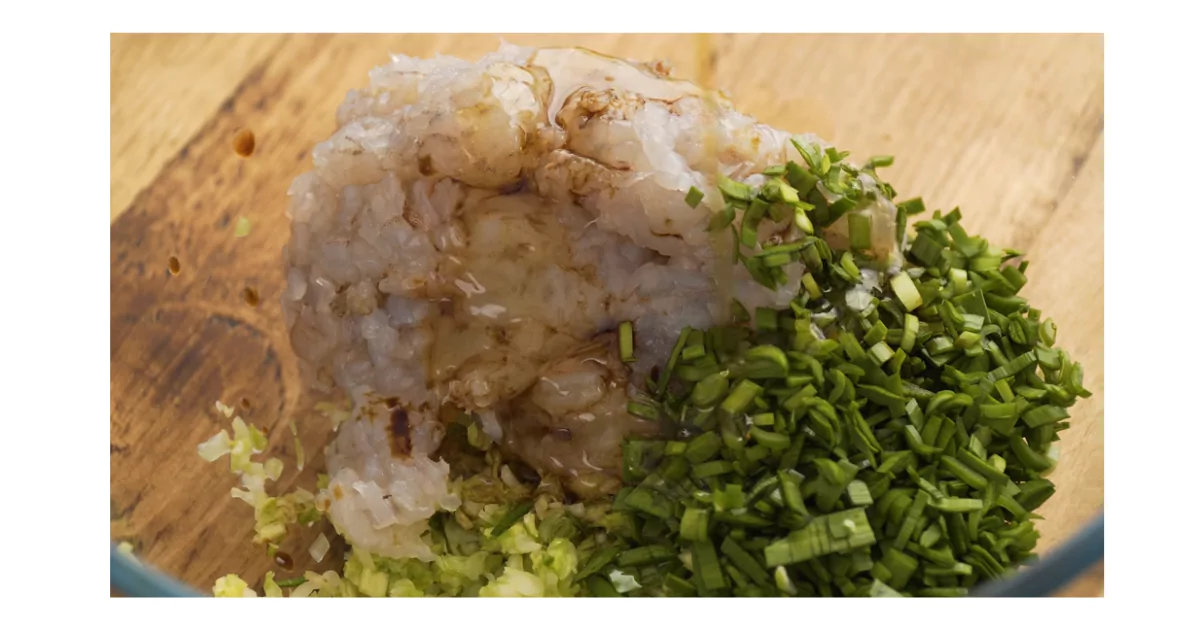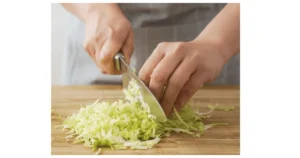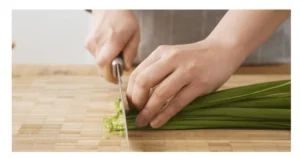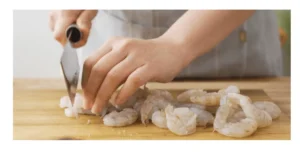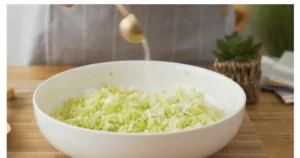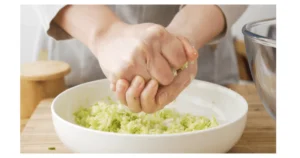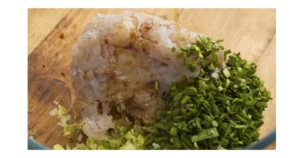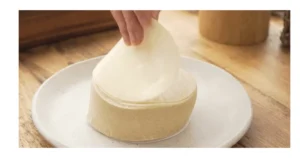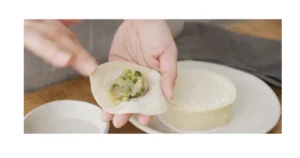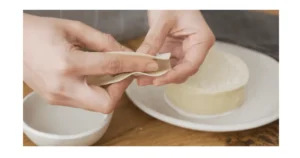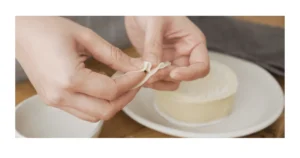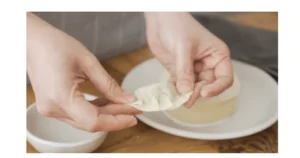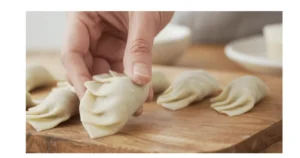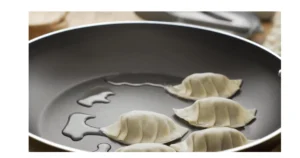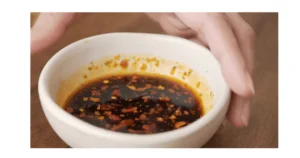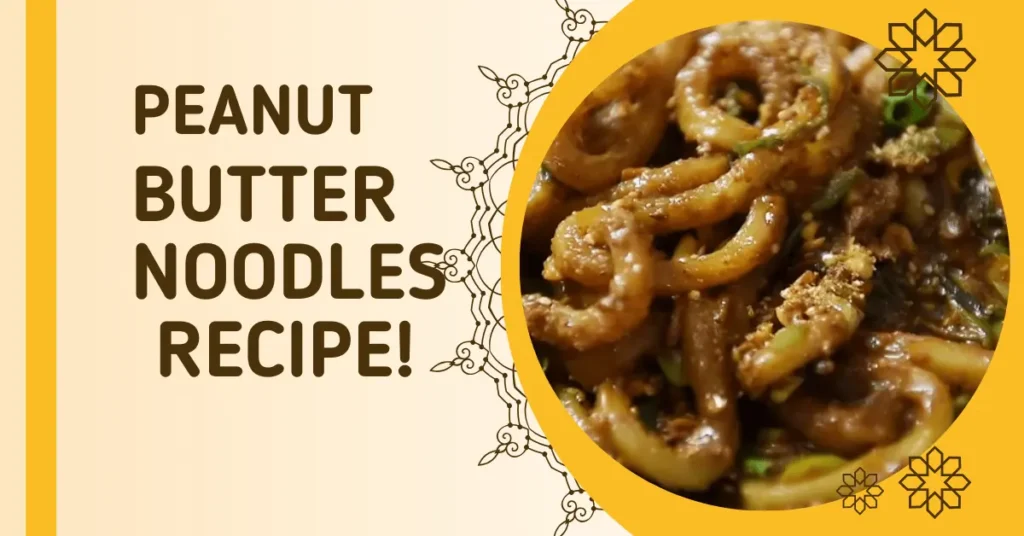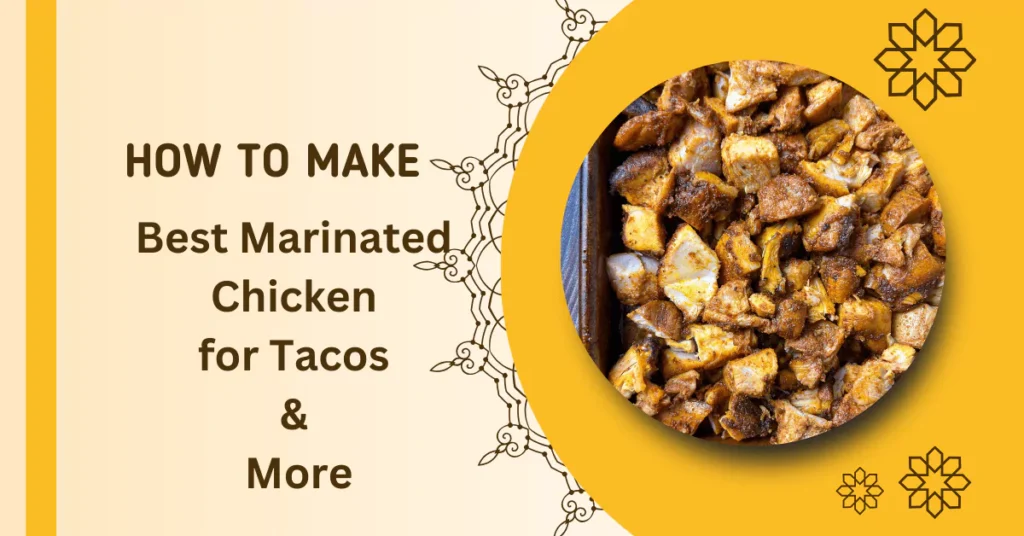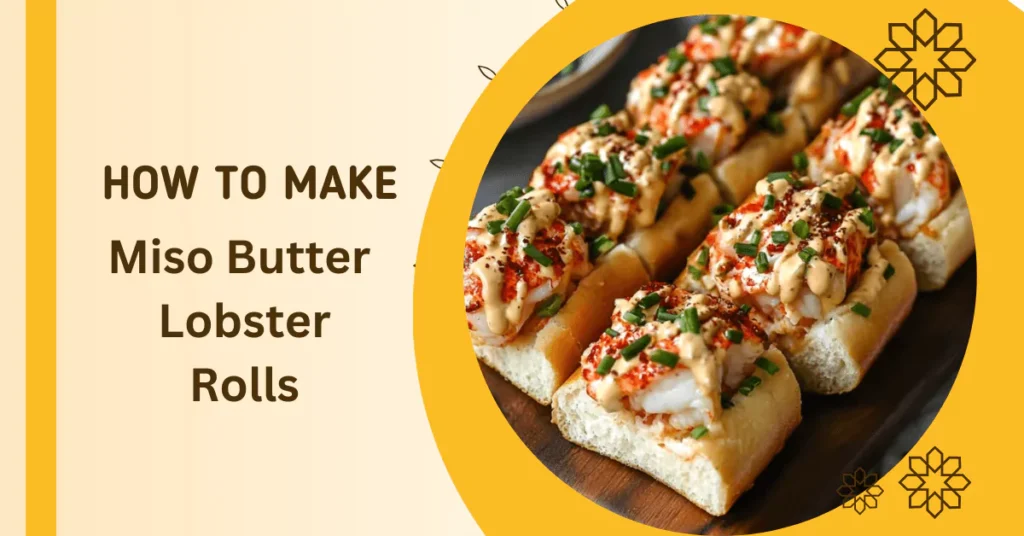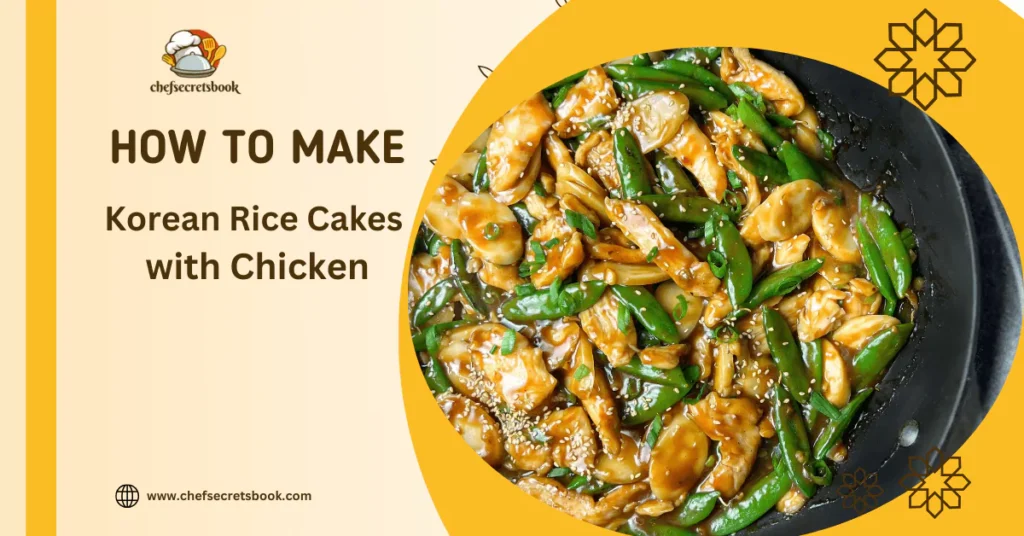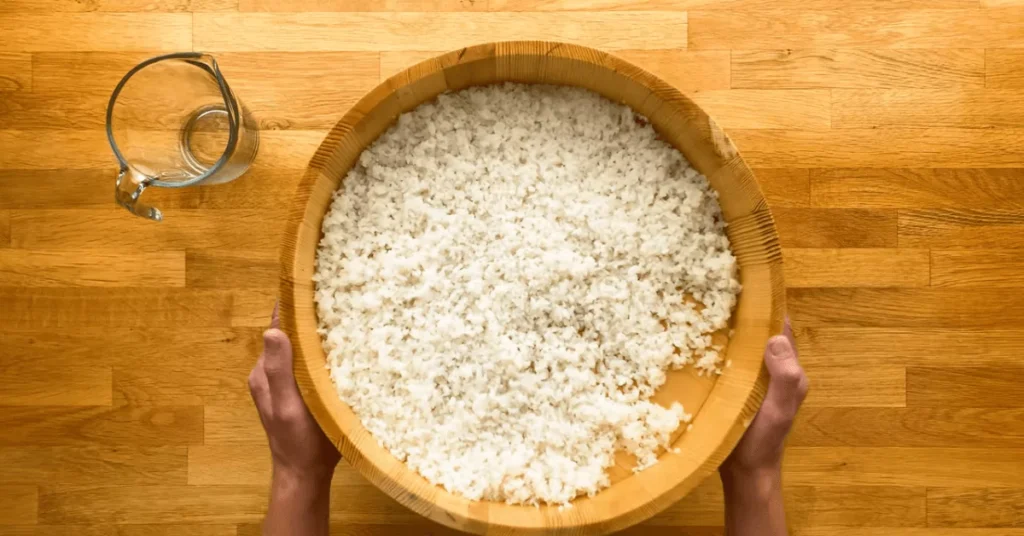Pan-fried gyoza is a loved Japanese dumpling dish that mixes crispy, golden bottoms with a juicy, flavorful filling. Perfect for appetizers, snacks, or at the same time as a main direction, this recipe is a should-strive for fanatics of Japanese cuisine. With its delicate prawn and vegetable filling, paired with a tangy dipping sauce, those dumplings are both impossible to resist and clean to make at home.
Making pan-fried gyoza at home isn’t only easy but also allows you to experience eating place-satisfactory dumplings with sparkling, customizable components. Whether you’re a dumpling fanatic or a novice inside the kitchen, this recipe is designed to supply genuine flavors with minimum attempt. From folding techniques to the ideal cooking guidelines, we’ve got the whole lot you want to grasp this iconic dish.
Enjoy the gratifying crunch of pan-fried gyoza paired with its savory, umami-packed filling in every chunk. This clean recipe brings the flavors of Japan straight to your desk, with the use of simple ingredients like prawns, cabbage, and soy sauce. Follow alongside for step-by-step commands and suggestions to create the proper gyoza that’s certain to electrify your own family and buddies!

What is Gyoza?
Gyoza originated in China however has grown to be a staple in Japanese delicacies. Known for his or her thin wrappers and wealthy fillings, those dumplings can be steamed, boiled, or pan-fried. Pan-fried gyoza, or Yaki Gyoza, is especially famous because of its crispy outdoors and smooth indoors.

Why You’ll Love This Pan-Fried Gyoza Recipe
- Authentic Taste: Combines conventional Japanese seasonings like soy sauce, mirin, and sesame oil.
- Versatile: Perfect as an appetizer, important dish, or birthday celebration snack.
- Easy to Customize: Swap substances to fit your dietary possibilities.
- Quick Cooking: Cooks in underneath 15 minutes, perfect for weeknight dinners.
Tips for Success Pan-Fried Gyoza
- Don’t Overfill: Too an awful lot filling can cause the wrappers to rip.
- Keep Wrappers Covered: Prevent them from drying out with the aid of masking them with a moist cloth.
- Use Non-Stick Pans: Ensures gyoza doesn’t stick and gets that ideal golden crust.
- Experiment with Fillings: Try ground pork, bird, or tofu for range.
Serving Suggestions For-Pan-Fried Gyoza
Serve your pan-fried gyoza with an aspect of steamed rice, miso soup, or a clean salad. For an additional indulgent meal, pair it with a tumbler of sake or Japanese green tea.

Why Homemade Pan-Fried Gyoza is Better
Making gyoza at home permits you to control the substances, making sure of freshness and flavor. Plus, it’s a laugh and rewarding culinary experience!
Storage and Reheating
To Store:
Refrigerate: Place cooked gyoza in a hermetic field for up to a few days.
Freeze: Freeze uncooked gyoza on a tray, then transfer to a bag for up to three months.
To Reheat:
Pan-Fry: Reheat in a skillet with a dash of water for crispy bottoms.
Steam: Use a steamer for softer dumplings.
Health Benefits of Pan-Fried Gyoza
Low in Fat: When pan-fried with minimal oil, they remain light and healthy.
Rich in Nutrients: Packed with protein, vitamins, and fiber from prawns and vegetables.
Customizable for Diets: Can be made gluten-free or vegan.
Pan-fried gyoza is a scrumptious dish that’s smooth to put together and cherished by using all. With its crispy texture and savory filling, it’s perfect for any meal or occasion. Try this recipe these days, and convey a flavor of Japan to your table!
Don’t overlook pinning this recipe and percentage it with pals. Have questions or hints? Leave a comment beneath!

Pan Fried Gyoza Recipe: Perfect Japanese Dumplings for Any Occasion
Ingredients
For the Dumplings:
- Gyoza Wrappers (30–35 sheets): Thin wrappers are key for genuine gyoza.
- Prawn/Shrimp (300g): Adds a delicate, juicy texture.
- Chives (100g): Provides a mild onion taste.
- Cabbage (150g): Adds sweetness and crunch.
- Garlic (2 tsp, grated): Enhances taste.
- Ginger (1 tsp, grated): Adds warm temperature and aroma.
Seasonings:
- Soy Sauce (1 tsp): Adds umami richness.
- Sesame Oil (1 tsp): Provides a nutty fragrance.
- Mirin (1 tsp): Balances flavors with moderate sweetness.
- White Pepper (¼ tsp): Adds subtle heat.
- Salt (½ tsp): Enhances all of the flavors.
- Corn Starch (½ tsp): Helps bind the filling.
For Cooking:
- Oil (1–2 tbsp): For pan-frying.
- Water (6–8 tbsp): Helps steam the dumplings.
For the Dipping Sauce:
- Soy Sauce (1 tbsp): The base of the sauce.
- Rice Vinegar (1 tbsp): Adds tanginess.
- Sugar (1 tsp): Balances the acidity
- Chili Oil (1 tsp): Adds a spicy kick.
Instructions
Step 1: Prepare the Filling
- Chop Ingredients: Finely chop the prawns, chives, and cabbage.



- Salt the Cabbage: Sprinkle salt over the cabbage and permit it take a seat for 10–15 mins.

- This step attracts out excess moisture.
- Squeeze the Cabbage: Use your palms or a easy material to squeeze out the water.

Step 2: Mix the Filling
- Combine the cabbage, prawn, and chives in a big bowl. Add grated garlic, ginger, soy sauce, sesame oil, mirin, salt, white pepper, and corn starch. Mix well till all elements are calmly included.

Step 3: Assemble the Dumplings
- Prepare the Wrappers: Lay out gyoza wrappers on a flat floor.


- Add Filling: Place a teaspoon of filling in the middle of every wrapper.

- Seal the Dumplings: Dip your finger in water, moist the edges of the wrapper, and fold it in half of. Pinch the rims to seal, creating pleats for an authentic look.



Step 4: Cook the Gyoza
- Heat the Pan: Add oil to a non-stick skillet and warmth over medium.
- Pan-Fry: Arrange gyoza flat-aspect down within the pan. Cook till the bottoms are golden brown.

- Steam: Add 6–eight tablespoons of water to the pan. Cover with a lid and let the gyoza steam for three–4 mins.
- Finish: Remove the lid and let the water evaporate. Fry for an additional minute to crisp up the bottoms.
Step 5: Make the Dipping Sauce
- In a small bowl, blend soy sauce, rice vinegar, sugar, and chili oil. Stir until the sugar dissolves.

Notes
Can I use save-sold gyoza wrappers?
Yes, keep-bought gyoza or dumpling wrappers paintings perfectly for this recipe. Make certain to choose skinny wrappers for an actual texture.
What can I use instead of prawns for the filling?
You can update prawns with floor beef, chook, pork, or even plant-primarily based options like tofu or mushrooms for a vegetarian model.
Three. How do I save you gyoza from sticking to the pan?
Use a non-stick skillet and ensure the pan is properly-heated with oil earlier than adding the gyoza. Avoid overcrowding the pan for even cooking.
Can I make gyoza beforehand of time?
Yes, you may gather the gyoza in advance and store them inside the fridge for as much as 24 hours or freeze them for up to three months. Cook them immediately from frozen with out thawing.
How do I fold gyoza if I’m a novice?
For a easy technique, fold the wrapper in 1/2 over the filling and press the edges firmly to seal. If you’re cushty, strive pleating the rims for a traditional look.
What other dipping sauces can I serve with gyoza?
Apart from the classic soy sauce and rice vinegar mix, try ponzu sauce, spicy chili oil, sesame-based totally sauces, or even a garlic-infused soy sauce.
How can I make the recipe gluten-unfastened?
Use gluten-unfastened wrappers and make certain the soy sauce and different seasonings are classified gluten-free.
Why do I need to feature water while cooking gyoza?
The water facilitates to steam the gyoza, cooking the filling very well even as preserving the wrappers gentle and smooth. The lid traps the steam for even cooking.
Can I use this recipe to make boiled or steamed gyoza?
Yes, you can adapt this recipe for boiled (sui gyoza) or steamed gyoza. Skip the frying step and prepare dinner them in boiling water or a steamer rather.
How do I reheat leftover gyoza?
Reheat pan-fried gyoza in a skillet with a touch of water and cover with a lid to preserve their crispy bottoms and juicy filling. Alternatively, use a steamer for a softer texture.
For more recipes,visit our website:https://chefsecretsbook.com/

